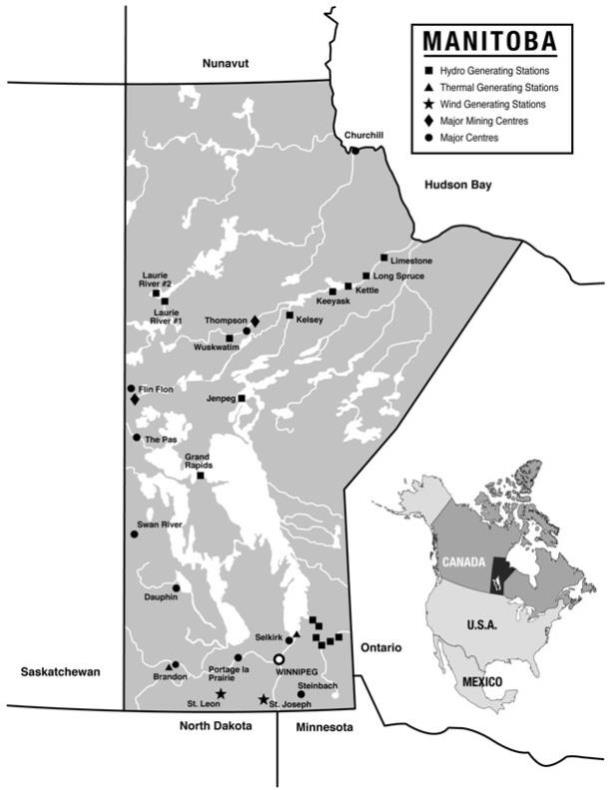The Province applies a tax at a general rate of 8% on retail sales of most tangible personal property and some services, with major exemptions in respect of food for home consumption, domestic heating, children’s clothing under $150 per item, custom software, most farm machinery and all prescription drugs. Retail sales tax revenue in the fiscal year ending March 31, 2019 is budgeted at $2,460.5 million, up from $2,443.9 million received in the previous fiscal year.
The Province levies a tax of 14.0¢ per litre on gasoline and motive fuels. For the fiscal year ending March 31, 2019, the revenues from gasoline and motive fuel taxes are budgeted at $345.0 million, slightly up from $343.7 million received in the previous fiscal year. There is also a tobacco tax of 29.5¢ per cigarette and 45.0¢ per gram of fine-cut tobacco. Total tobacco tax revenue for the fiscal year ending March 31, 2019 is budgeted at $231.2 million, up from $228.1 million received in the previous fiscal year.
A levy for financing health and post-secondary education is applied to total compensation paid to employees by Manitoba employers. Employers with annual payrolls under $1.25 million are exempt and those with payrolls between $1.25 million and $2.5 million are subject to reduced rates. The tax rate on taxable payroll is 2.15%. For the fiscal year ending March 31, 2019, the levy is budgeted to yield $499.2 million, up from $490.4 million received in the previous fiscal year.
Federal Government Transfers: Total transfer payments from the Government of Canada are budgeted to provide $4,201.3 million, or approximately 31.0%, of the Province’s total core revenue in the fiscal year ending March 31, 2019. This compares to $3,859.2 million, or approximately 29.7%, received in the previous fiscal year.
Unconditional transfers, primarily grants under a Federally-funded Provincial fiscal equalization formula and cash payments under the Canada Health Transfer (CHT) and Canada Social Transfer (CST), along with targeted health funds are budgeted to account for $3,995.5 million, or approximately 29.5% of total core revenue in 2018/19. This compares to $3,686.8 million, or 28.4%, received in the previous fiscal year. Conditional transfers, consisting mainly of Federal payments in respect of cost-shared programs for social and economic development, account for the remainder of the Government of Canada transfers.
Equalization and the CHT and CST (major transfers) are authorized by the Federal-Provincial Fiscal Arrangements Act (Canada) (Fiscal Arrangement Act).
The Government of Canada’s Equalization Program (the Equalization Program) is intended to ensure Provincial Governments have sufficient revenue to offer reasonably comparable public services at reasonably comparable levels of taxation. Formula-driven, it determines how much revenue each Province could raise on its own at typical levels of taxation and any shortfall relative to the Provincial average (the 10-Province “standard”) is partially or fully paid out in “Equalization”. Entitlements are announced in advance of the fiscal payment year and are not subject to revision. The Province has budgeted $2,036.9 million in Equalization revenue in the fiscal year ending March 31, 2019, up from $1,820.4 million received in the previous fiscal year.
The total annual Equalization Program payout grows in line with the economy as measured by a three-year moving average of national nominal Gross Domestic Product (GDP) growth.
The CHT is the primary Federal Transfer to Provinces and Territories in support of health care. Total CHT cash support for all Provinces and Territories will reach $38.6 billion in 2018/19. The CHT grows in line with a three-year moving average of national, nominal GDP growth, with funding guaranteed to increase by at least 3% per year. The CHT is allocated on an equal per capita cash basis. The Province has budgeted $1,441.1 million in CHT revenue in 2018/19, up from $1,365.2 million received in the previous fiscal year.
Included in the budgeted CHT revenue in 2018/19 is $31.1 million in targeted federal funding for home care and mental health services, up from $10.9 million in 2017/18. Manitoba will receive $400 million over 10 years in targeted health funding, its per capita share of an $11 billion national fund announced in federal Budget 2017.
The CST supports Provinces and Territories in the provision of post-secondary education, social assistance and social services, including early childhood development and childcare. It is allocated on an equal per capita cash basis across all Provinces and Territories and includes a 3% annual escalator. The Province has budgeted $517.5 million in CST revenue in 2018/19, up from $501.2 million received in the previous fiscal year.
The Fiscal Arrangements Act has a Provincial revenue stabilization provision that provides for Federal grants and interest-free loans if revenue from a Province’s own source revenues plus Equalization falls below 95% of the previous year’s level, excluding variations in natural resource revenue. The Province is not expected to require stabilization funding in 2018/19.
Core Government Expenses
Health, Seniors and Active Living. For the fiscal year ending March 31, 2019, expenditure for Health, Seniors and Active Living is budgeted at $6,160.4 million, up from $5,959.0 million expensed in fiscal 2018 and an increase of 0.9% over the
30

